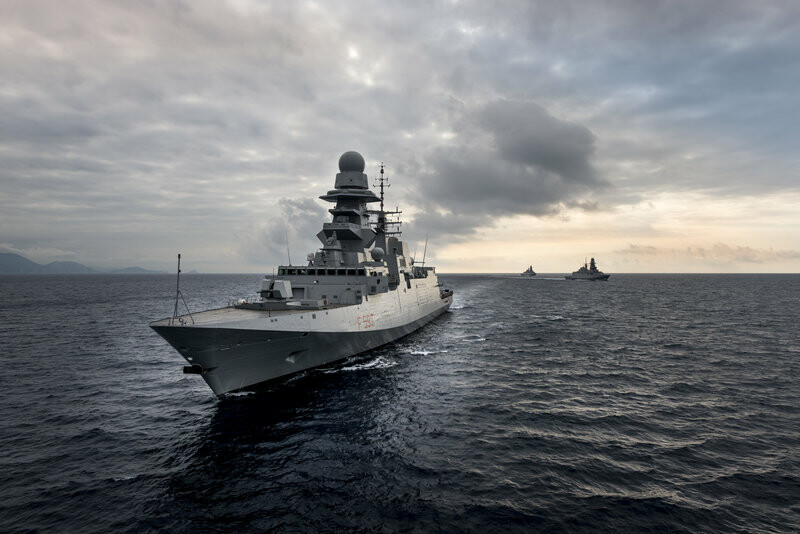The Department of Defense announced recently that the Navy is exercising a $553.8 million option to have Fincantieri Marinette Marine build the second Constellation-class frigate.
The Wisconsin shipyard is currently working with the Navy on the detailed design phase of building the first-in-class Constellation (FFG-62), a modern guided-missile frigate based partially on the Italian FREMM. Fabrication is planned to start at the end of this year, and the ship is expected to deliver to the Navy in 2026.
This contract is the first of nine potential options on future guided-missile frigates for the Wisconsin shipyard.
Dario Deste, president and CEO of Fincantieri Marine Group, stated that the approval on the second ship was expected based on progress on FFG design efforts, as well as the company’s demonstrated commitment and follow-through on capital improvements.
“While it is good to have additional work lined up for our shipyards, I believe the most important aspect of this decision is that our customer believes that together we are a strong team focused on delivering a capable and adaptable ship that will serve well into the future,” Deste said in a prepared statement. “We made substantial investments in our system-of-shipyards in Wisconsin, so that we can solidify our position as a surface combatant center of excellence.”
Fincantieri Marinette Marine received the initial FFG(X) contract April 30, 2020, for the lead ship and options for nine additional ships valued at $5.5B. Although the award happened several months earlier than planned, FMM went into the DD&C (Detail Design and Construction) phase with a lot of momentum.
“There was very little time for fanfare after the initial award,” said Deste. “Frankly we were happy to receive it [the award], but more happy to start working closely with the U.S. Navy as the prime contractor on this important program for them.
“There are always challenges when you build a first-in-class ship, but we started with a phenomenal parent design — the FREMM — which is internationally known as a reliable, versatile and operationally-proven warship,” said Deste. “And we continue to work with the U.S. Navy to give them exactly the ship they want.”
Deste added, “In the end, we expect to make many frigates for the U.S. Navy beyond the initial 10.”




